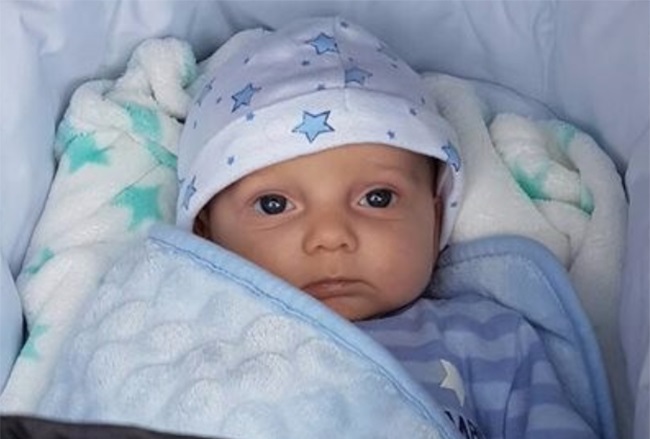Hospitals and governments now are deciding whether sick children should be given a chance at life, as is evident in the case of British infant Charlie Gard.
Charlie suffers from a rare mitochondrial disease, and his parents want to take him to the United States for an experimental treatment. They raised more than $1 million for his care, and said they want to give Charlie every chance at life.
Chris Gard and Connie Yates said they know the chance of the experimental treatment working is slim, but they want to try anyway for their son’s sake.
But so far, the courts and hospital have refused to allow them to transfer their son to another hospital for the treatment. Two weeks ago, the European Court of Human Rights ruled that the hospital can remove Charlie’s life support and allow him to die. However, last week, the hospital agreed to consider new evidence involving Charlie’s condition before taking him off the ventilator.
Basically, some medical experts believe Charlie would be better off dead. Lawyers for the hospital argued in court that allowing Charlie to continue living is “inhuman.”
Katie Gollop QC, who led Great Ormond Street’s legal team, suggested that further treatment would leave Charlie in a “condition of existence”.
She said therapy proposed in the USA was “experimental” and would not help Charlie.
Keep up with the latest pro-life news and information on Twitter. Follow @LifeNewsHQ
“There is significant harm if what the parents want for Charlie comes into effect,” she told appeal judges. “The significant harm is a condition of existence which is offering the child no benefit.”
She added: “It is inhuman to permit that condition to continue.”
Gollop said they do not know if Charlie is in pain, but he cannot see, hear or move.
Despite all of his problems, Charlie’s parents – and millions like them – believe that Charlie is a valuable, living human being who should be given a chance to live — not because of what he can or can’t do but because of who he is.
“They wish to exhaust all possible options,” said Richard Gordon, a lawyer for Charlie and his parents. “They don’t want to look back and think ‘what if?’. This court should not stand in the way of their only remaining hope.”
Yates told told Good Morning Britain last week, “I’ve heard from doctors that there’s around a 10% chance of this working for Charlie so I think that’s a good enough chance to take.”
She said she does not want her son to suffer. She said it has been “absolute living hell” to wait and wonder when the hospital might end his life support.
“He’s our own flesh and blood and we don’t even have a say in his life whatsoever,” Yates said. “We are not bad parents, we are there for him all the time, we are completely devoted to him and he’s not in pain and suffering, and I promise everyone I would not sit there and watch my son in pain and suffering, I couldn’t do it.”
Dave Andrusko at National Right to Life News wrote about the case yesterday:
Nobody is saying that Charlie will be cured. The parents are confident, based on input from seven specialists Connie says are supporting them in their fight to try experimental therapy, that they “could reduce the effects of the disease,” as BBC Health Correspondent Nick Triggle described it. If they take Charlie to the United States, his condition does not improve and he is pain (which the hospital and judges admit they cannot prove)–Connie said, “we would let him go. This isn’t about us. This is about Charlie and giving him the chance he needs.”








